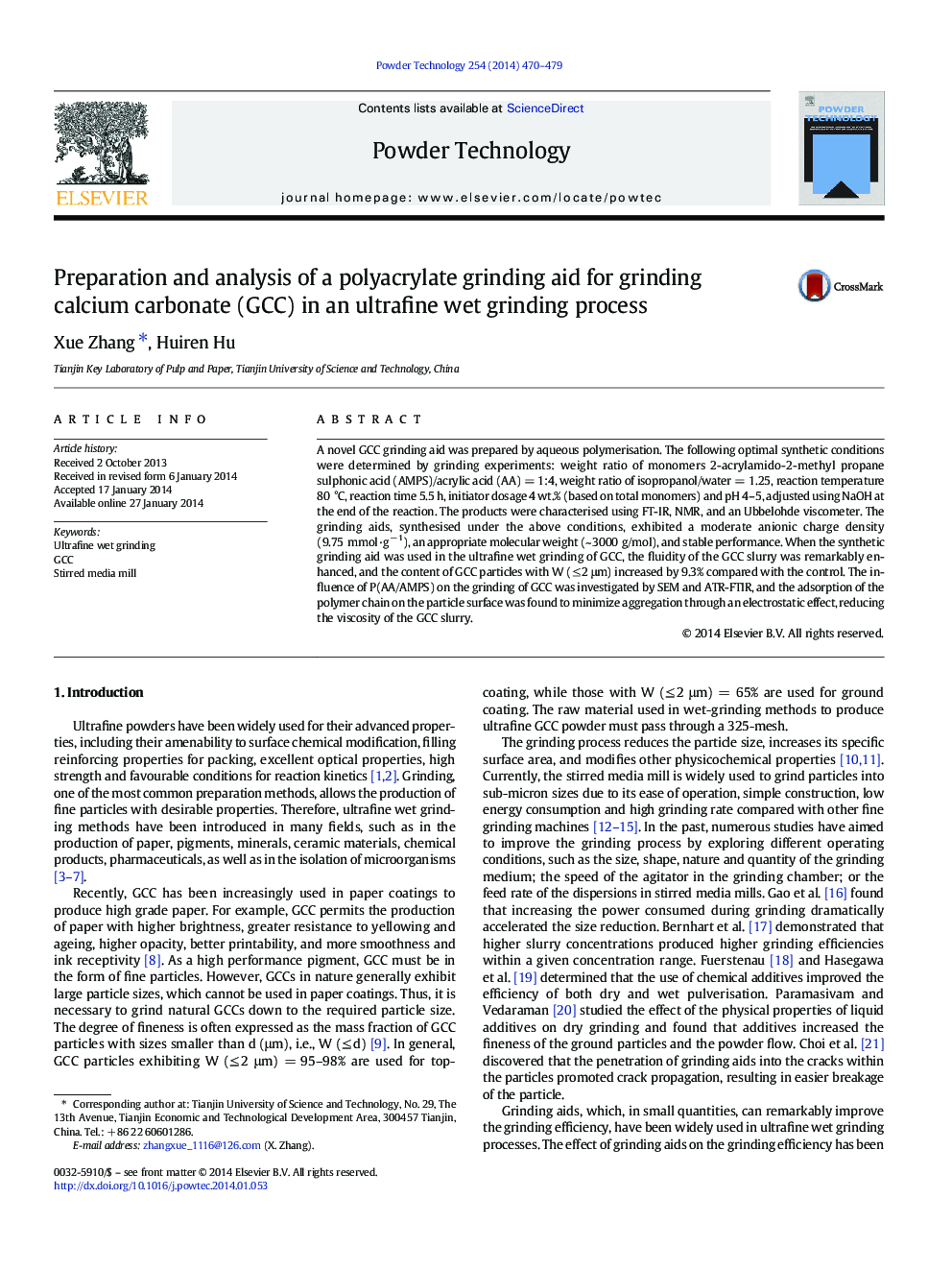| Article ID | Journal | Published Year | Pages | File Type |
|---|---|---|---|---|
| 236275 | Powder Technology | 2014 | 10 Pages |
•A novel GCC grinding aid was prepared by aqueous polymerization.•The fluidity of the GCC slurry was remarkably enhanced by the synthetic grinding aid.•Influence of P(AA/AMPS) on the grinding of GCC was investigated by SEM and ATR-FTIR.•The grinding mechanism was that aggregation was minimized by an electrostatic effect.
A novel GCC grinding aid was prepared by aqueous polymerisation. The following optimal synthetic conditions were determined by grinding experiments: weight ratio of monomers 2-acrylamido-2-methyl propane sulphonic acid (AMPS)/acrylic acid (AA) = 1:4, weight ratio of isopropanol/water = 1.25, reaction temperature 80 °C, reaction time 5.5 h, initiator dosage 4 wt.% (based on total monomers) and pH 4–5, adjusted using NaOH at the end of the reaction. The products were characterised using FT-IR, NMR, and an Ubbelohde viscometer. The grinding aids, synthesised under the above conditions, exhibited a moderate anionic charge density (9.75 mmol·g− 1), an appropriate molecular weight (~ 3000 g/mol), and stable performance. When the synthetic grinding aid was used in the ultrafine wet grinding of GCC, the fluidity of the GCC slurry was remarkably enhanced, and the content of GCC particles with W (≤ 2 μm) increased by 9.3% compared with the control. The influence of P(AA/AMPS) on the grinding of GCC was investigated by SEM and ATR-FTIR, and the adsorption of the polymer chain on the particle surface was found to minimize aggregation through an electrostatic effect, reducing the viscosity of the GCC slurry.
Graphical abstractFigure optionsDownload full-size imageDownload as PowerPoint slide
